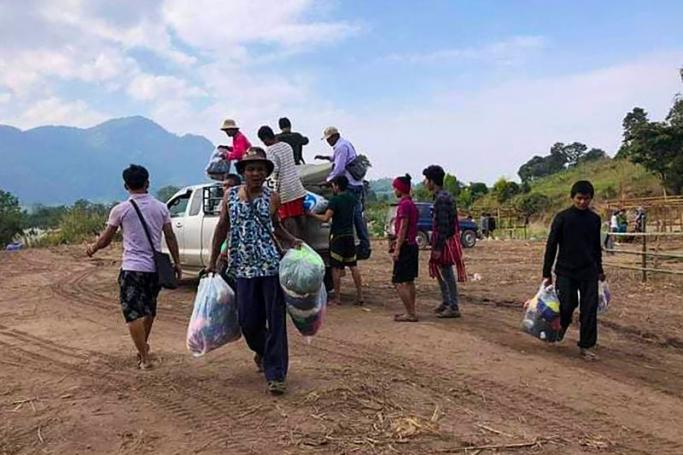Mizzima
The briefing paper, ‘A Shifting Power Balance - Junta Control Shrinks in Southeast Burma’, by the Karen Peace Support Network (KPSN) reveals that the junta’s State Administration Council (SAC) is losing military and administrative control in southeast Burma.
It reveals that since the coup the SAC has lost 62 military bases to the Karen National Union/Karen National Liberation Army (KNU/KNLA) and its allies.
“Diplomats and UN agencies based in Yangon may have the impression there that the military are all powerful and in control but the reality outside Yangon and other cities is very different,” said, Naw Wahkushee, Director of the Karen Peace Support Network. “The shifting power balance in Karen State and other areas should prompt governments and UN agencies to reassess their approach both politically and for the delivery of humanitarian assistance.”
According to the report, there have been striking strategic gains on the western and eastern boundaries of northern KNU territory. The KNU’s expansion westwards and southwards also poses a significant threat to the regime’s main road and rail transport artery from Yangon to Naypyidaw, as well as to the Asia Highway trade corridor from Yangon to Myawaddy on the Thai border.
The expansion of the KNU’s administrative territory means that there has been significant progress towards establishing devolved federal schools with curriculums based on local majority languages, culture and history. Schools operated by the Karen Education and Culture Department have tripled to more than 900. Ministry of Education schools in KNU and mixed administration areas have fallen from 370 to zero.
As the KNU and allies expand territorial control, the SAC has escalated artillery and air attacks against local communities. There have been 1,178 artillery attacks and 417 airstrikes since the start of the coup until July 2023. The rate of these attacks has increased in the past 15 months compared to the first 15 months after the coup.
There has been indiscriminate use of both airstrikes and shelling in civilian-populated areas, as well as direct targeting of community infrastructure, such as religious buildings, schools and clinics. This includes the complete or partial destruction of 19 schools, 15 churches, 10 monasteries and six clinics. This has been a key driver of displacement.
There are now an unprecedented 637,414 Internally Displaced People (IDPs) in Kawthoolei (Karen State). This does not include IDPs in Dooplaya and Mergui-Tavoy districts, as aid organisations have been unable to access those areas.
KPSN estimates that $43 million is needed in the next 12 months to provide food aid to these IDPs. This is to address the food crisis alone, not including shelter, medical needs and education. The only way to provide support to these people is through the local border-based networks such as the Karen Emergency Relief Team.
The only district where the number of IDPs has slightly fallen is Mutraw, where the KNU’s -tightened control and expansion of neighbouring territory has driven the Burmese military from bases used to fire artillery.
The Karen Peace Support Network is deeply concerned that UNOCHA (the United Nations Office for the Coordination of Humanitarian Affairs) continues to vastly underestimate the number of IDPs in southeast Burma, reporting only 322,600 IDPs in the Kawthoolei area in July 2023. Yangon-based UN agencies operating under the restrictions of the SAC do not have access to most parts of Kawthoolei. Their underreporting of the true number of IDPs leads to flawed decision-making in the allocation of funds and people not receiving life-saving aid.












